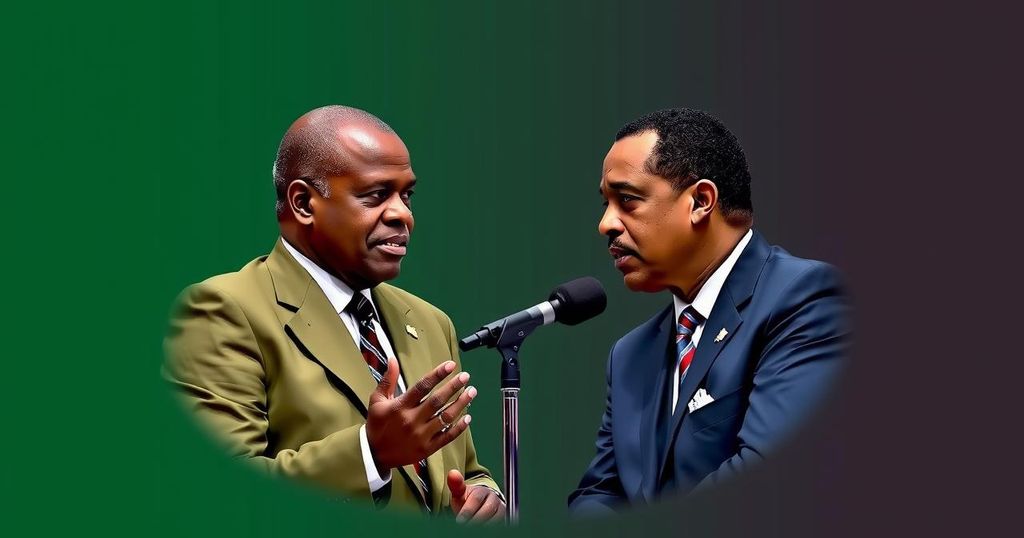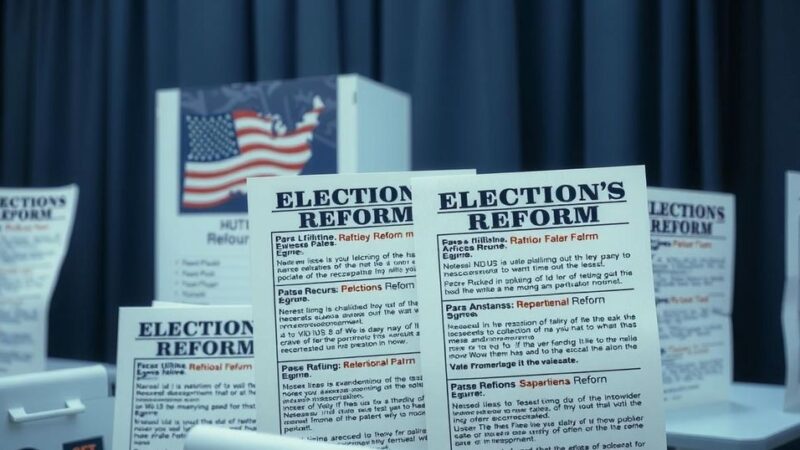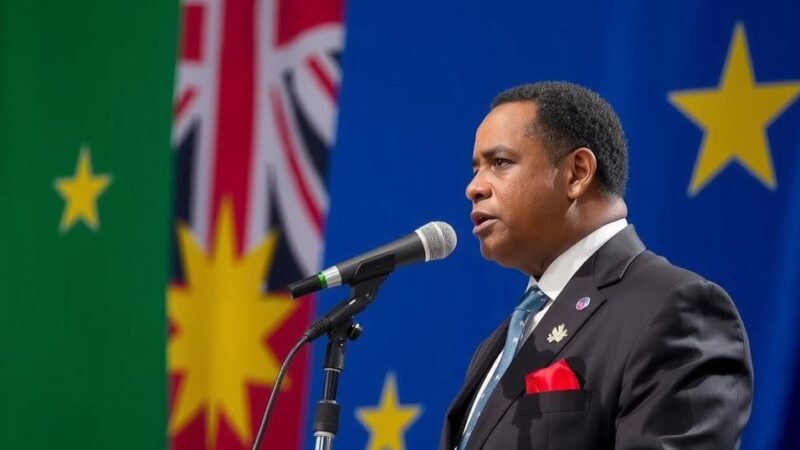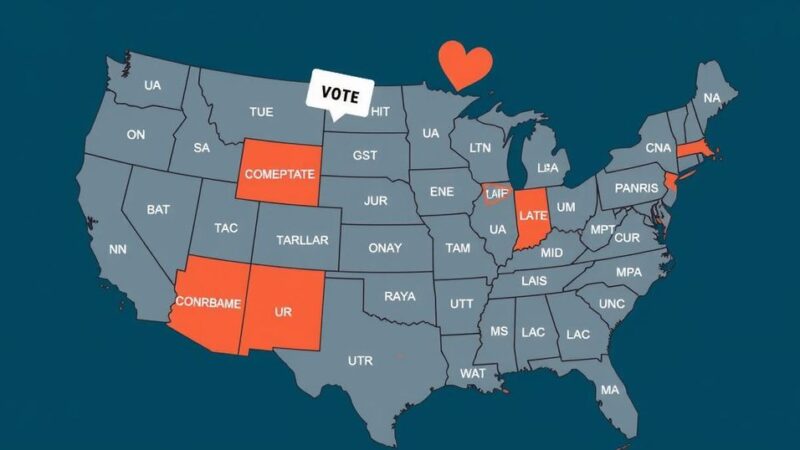The 2024 U.S. presidential election holds significant global interest, with Donald Trump leading in electoral votes at 267 against Kamala Harris’s 224. In Kenya, political leaders express varied reactions, with some endorsing Trump for perceived positive outcomes for Africa, while others focus on the importance of democracy and support for Harris. This election’s implications are being closely analyzed as world leaders prepare for potential future relations with the U.S.
As the 2024 United States presidential election approaches its conclusion, the global focus intensifies on its implications, particularly for international relations. Republican candidate Donald Trump currently leads the electoral vote count with 267, edging closer to the 270 needed for victory, while Democratic contender Kamala Harris follows with 224 votes. Such a scenario would enable Trump to reclaim the presidency, having previously served from 2017 to 2021. This electoral contest has elicited rapid responses from international leaders, including British Prime Minister Keir Starmer and Israeli Prime Minister Benjamin Netanyahu, who are poised to congratulate the probable winner. The reverberations of the U.S. election are felt far beyond its borders, notably in Kenya, where political figures are assessing the possible consequences for their nation. Kiharu Member of Parliament Ndindi Nyoro, a prominent supporter of President William Ruto’s administration, has publicly endorsed Trump, contending that Republican leadership generally fosters improved conditions for Africa and the Global South. Nyoro accentuates the likelihood of economic advancements through anticipated changes in monetary policies under Trump’s governance. Conversely, Wiper Party leader Kalonzo Musyoka has embraced a more diplomatic posture, offering congratulations while underscoring the significance of upholding democratic processes. Nairobi Woman Representative Esther Passaris remains steadfast in her backing for Harris, praising her campaign’s commitment to addressing substantial issues. Meanwhile, Embakasi East MP Babu Owino has utilized the moment to outline his ambitions for the 2027 elections, while Kirinyaga County Governor Anne Waiguru adeptly recognizes the contributions of both candidates to democracy. Former Nairobi Governor Mike Sonko has drawn parallels between Trump’s political resilience and his own experiences, while Kapseret MP Oscar Sudi insists on prioritizing tangible actions over mere rhetoric. Further reinforcing Trump’s anticipated victory, Murang’a Senator Irungu Kang’ata and former Law Society of Kenya President Nelson Havi have expressed their confidence, with Havi suggesting that prior allegations of election fraud have inadvertently fortified Trump’s standing in the electoral race.
The significance of the U.S. presidential election extends beyond American borders, impacting international relations and garnering attention worldwide. The rivalry between major political figures, such as Donald Trump and Kamala Harris, generates considerable discourse on governance and policy implications for various nations, including those in Africa. Leaders from different countries often assess these developments as they evaluate potential future engagements with the United States, making informed decisions from both political and economic perspectives.
In summary, the responses from Kenyan leaders regarding the U.S. presidential election highlight the global ramifications of such an event, particularly in the context of international politics and relations. The support for Trump by certain leaders contrasts with the more diplomatic approach taken by others favoring Harris. This illustrates a diverse political landscape in Kenya, where leaders are keenly aware of the implications of U.S. governance on their countries.
Original Source: www.mwakilishi.com






